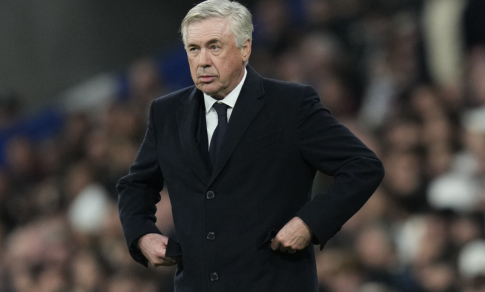The new front trio for Real Madrid, along with Jude Bellingham, remained on the pitch until the 88th minute in their recent match. Despite their initial cohesion, their cooperation deteriorated as the game progressed. However, manager Carlo Ancelotti chose not to make early substitutions, prioritizing team harmony over securing points. His decision seemed aimed at maintaining balance and preventing any discord in the dressing room, even at the risk of losing the match.
Ancelotti is recognized not only for his tactical acumen but also for his exceptional psychological management of players. This season, his challenge is particularly significant. Last season, the team's harmony was nearly perfect, and Bellingham integrated well both socially and on the pitch. However, Kylian Mbappé's strong personality poses a potential threat to this balance, requiring careful handling to avoid early tensions.
The responsibility for maintaining harmony doesn't rest solely on Ancelotti; the stars themselves must play their part. Mbappé joined Real Madrid without an explicit intent to dominate, and his teammates, particularly the Brazilian contingent, have gone out of their way to welcome him. This camaraderie was evident during the European Supercup against Atalanta, where Vinicius celebrated Mbappé's goal in a show of solidarity. Despite their efforts, the trio's tactical coherence faltered, especially in the second half, creating issues that need addressing.
A key tactical challenge is that all three forwards prefer to play on the left wing. For Vinicius, this position is natural, and he has thrived there at Real Madrid. Rodrygo, while accustomed to playing on the right, also prefers the left and has delivered some of his best performances when allowed to operate there. Mbappé, although expected to play centrally, also favors the left wing. This overlapping preference led to congestion on the left side of the pitch, diminishing their effectiveness as a unit.
While a flexible setup allowing all three to rotate on the left wing can be advantageous, it must be carefully managed to avoid predictability. The team's goal against Atalanta showcased the potential of this approach when both Brazilians combined beautifully on the left. However, in their recent match, this tactic became excessive, with all three forwards frequently occupying the same space, leading to crowding and predictability. The right wing, meanwhile, was largely neglected, further compounding the tactical issues.
Ancelotti recognized these problems but hesitated to make the necessary changes. Despite having players like Arda Güler, Brahim Díaz, and Endrick available, who could have altered the game's momentum, he delayed substitutions until it was almost too late. When Luka Modric was finally introduced, it was to replace Aurelien Tchouameni, which inadvertently softened Real's midfield. Federico Valverde's defensive ineffectiveness was also exposed, nearly costing the team a goal in the final minutes.
Ancelotti acknowledged that the hosts were closer to winning the match and even criticized his players post-game. However, he defended his decision to keep the starting forwards on the pitch until the end. This move was less about winning the specific game and more about managing egos and avoiding potential conflicts. The big question now is whether this strategy will pay off in the long run or if it will create a sense of immunity among the star players while sidelining others who deserve opportunities. Ancelotti's psychological approach is commendable, but the upcoming match against Valladolid will be a crucial test of whether his decisions can maintain team cohesion without compromising performance.








ADD A COMMENT :